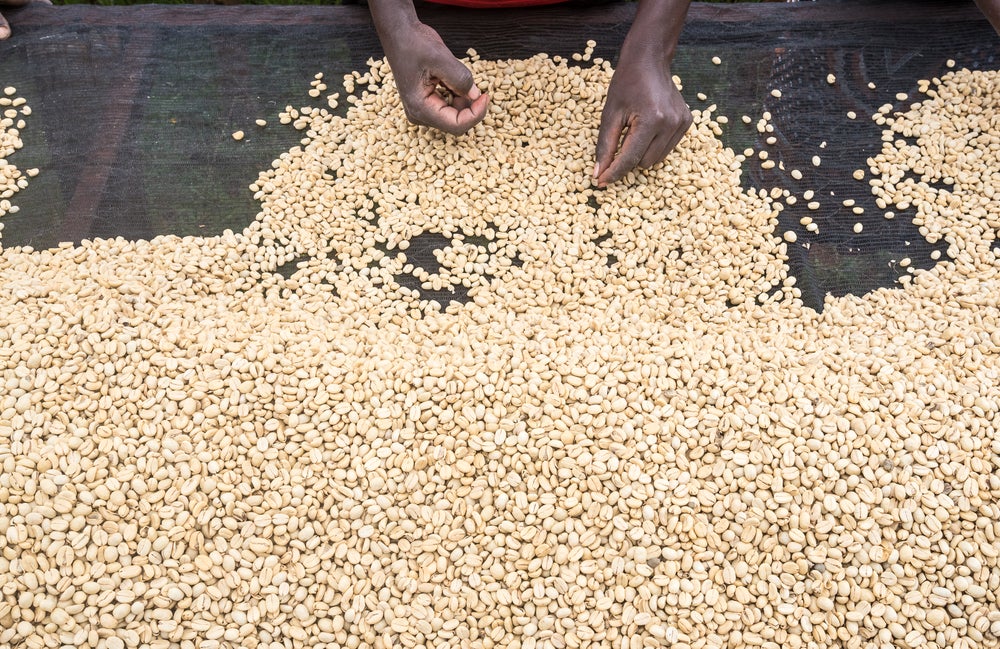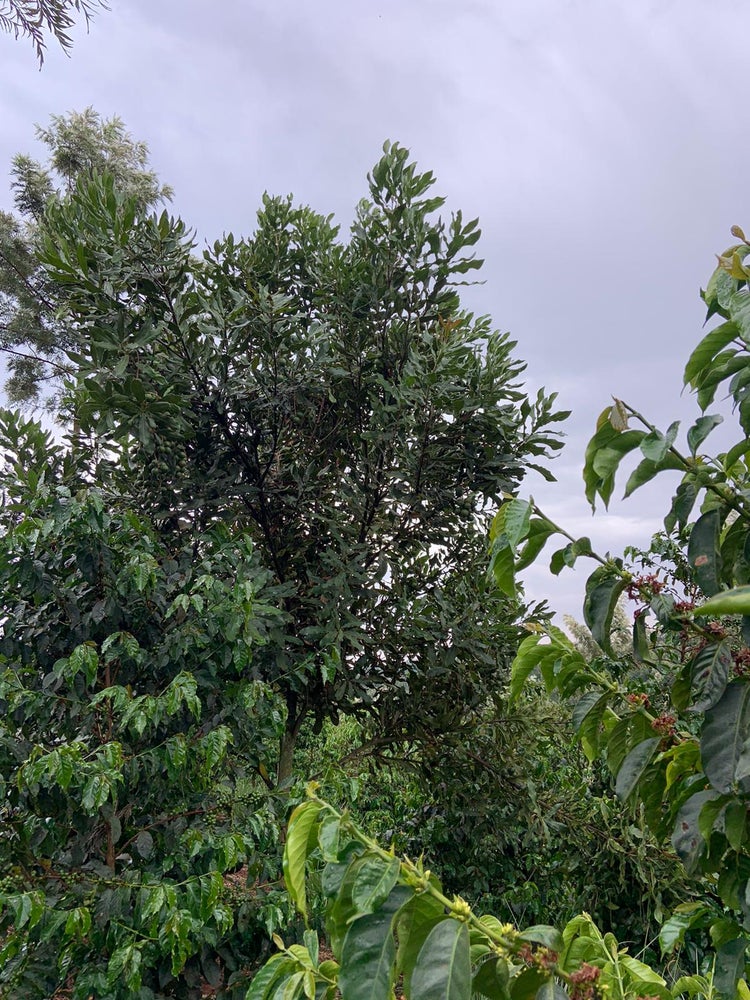About This Coffee
Kahata Farm is small but perfectly situated for growing great coffee. John Kahata Mucau (the farm is named after John) grows SL23 and SL34 coffee here with the utmost care. Not only does the coffee benefit from Kiambu’s ideal coffee growing conditions, but John also receives support from the team at Kahawa Bora. He receives regular training from field agronomists in Good Agricultural Practices, including fertilizer application, pruning guidance and renovation advice, which helps him to keep his small farm in excellent condition.
Cultivation
Kiambu is one of Kenya’s most famous coffee growing regions, with rich soil, cool nights and warm days.
John makes the most of his ideal location and cultivates ‘traditional’ SL34 and SL28 coffee trees. The ‘SL’ varieties were cultivars originally released by Scott Agricultural Laboratories (SAL) in the 1930s and 1940s. They soon became the go-to trees for many growers in Kenya due to their deep root structure, which allows them to maximize scarce water resources and flourish even without irrigation.
John conducts work on his farm with passion and diligence. He has also chosen to work with Kahawa Bora for the excellent quality of support they give. From pruning to fertilizer application to troubleshooting pests and diseases, John knows he can rely on their field support staff to help him achieve his goals.
Harvest & Post-Harvest
John’s farm is categorized as a ‘small estate’ in Kenya. Traditionally, many farmers of this size have delivered cherry to a centralized cooperative-owned ‘Factory’ (as washing stations are called, locally), where their production is combined with that of others from their region. John has decided to operate his own small wet-mill, located on the farm, where he is able to process his own coffee, ensuring full traceability.
Cherry is selectively handpicked and then pulped. Coffee is dry fermented for 16 to 20 hours and washed in clean water to remove any remaining mucilage. Parchment is soaked for 24 hours and then transferred to raised beds where it sundries for 18 to 26 days. As it dries, parchment is turned regularly to ensure even drying.
Another benefit to working with Kahawa Bora is their separate microlot milling line that was installed to hull (remove the parchment from the green coffee beans) lots as small as one bag at a time. The dry-milling set-up within Kenya does not traditionally well serve small-to-medium size farmers. Many dry mills have lot minimums, which are usually about 50 bags of parchment per lot. This is often unattainable for smaller farmers, necessitating that they merge their lots with others and lose traceability, which in turn lowers their overall returns and removes the potential for name recognition and direct-trade relationships.
Kahawa Bora’s microlot milling line makes it possible for growers like John to maintain their own ‘brand’ when selling their coffee.
About Kiambu
Kiambu is right outside Kenya’s capital city of Nairobi but is nonetheless known for agriculture – specifically coffee and tea. The county is also home of the Kenyan Coffee Research Foundation.
Kiambu County is also well known for its dairy production, and is the largest dairy producing county in Kenya. Many of the growers here adhere to organic fertilizing practices, using only cow manure instead of agrochemicals on their coffee trees.
Farmers in Kiambu face low production due to pests and disease while simultaneously having to pay high prices for inputs. In recent years, many have felt the strain and have sold their land to real-estate developers looking to build on the edge of Nairobi.
AA Grade
Kenyan coffees are classified by size. AA beans are the largest size. AA grade coffees are those that are 17/18 screen size, meaning that they are larger than 7.2 millimeters.
Coffee in Kenya
Though coffee growing had a relatively late start in Kenya, the industry has gained and maintained a impressive reputation. Since the start of production, Kenyan coffee has been recognized for its high-quality, meticulous preparation and exquisite flavors. Our in-country sister company, Sucafina Kenya, works with farmers across the country to ensure these exceptional coffees gain the accolades they deserve.
Today, more than 600,000 smallholders farming fewer than 5 acres compose 99% of the coffee farming population of Kenya. Their farms cover more than 75% of total coffee growing land and produce nearly 70% of the country’s coffee. These farmers are organized into hundreds of Farmer Cooperative Societies (FCS), all of which operate at least one factory. The remainder of annual production is grown and processed by small, medium and large land estates. Most of the larger estates have their own washing stations.
Most Kenyan coffees are fully washed and dried on raised beds. The country still upholds its reputation for high quality and attention to detail at its many washing stations. The best factories employ stringent sorting practices at cherry intake, and many of them have had the same management staff in place for years.

